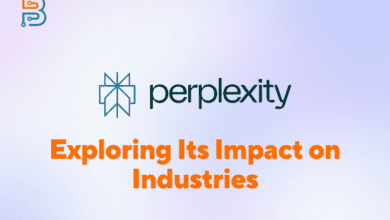Navigating Mental Health Apps Using AI

The use of AI over the past years has been on the rise. Almost all professional fields have incorporated AI to help improve customer service delivery and enhance efficiencies. One of the most promising fields of AI development is healthcare. In this area, AI can be used to help diagnose patients.
While AI for mental health has promising advantages, it also raises ethical concerns, meaning that ensuring the right balance between human interaction and technological progress is vital.
Artificial Intelligence in Mental Health
While Artificial Intelligence technology is becoming an important aspect of medicine, the mental health field has been slower in adopting AI. AI in mental health still has so much potential, and mental health clinics can benefit from it in a couple of ways, including understanding mental illnesses. Some apps use AI in various ways, including:
Mood Tracking
Most mental health apps allow you to track your thoughts, behaviors, and mood. The AI can easily identify the connection between mood and factors like sleep or social interaction. The app may then offer recommendations to stabilize your mood.
AI-powered Coaching
Some apps, such as Woebot or Youper, provide coaching for conditions like anxiety and depression. These AI coaching can be helpful but they lack the empathy and nuance of a human therapist.
Read Also: What is Artificial Intelligence? How It is Changing the Business Landscape

Emotion Detection
Newer mental health apps are capable of analyzing speech, images, or writing samples to determine your emotional status. The AI then provides tips and tricks for managing difficult conversations or stress.
Benefits of Artificial Intelligence in Mental Health
The use of ai mental health apps opens a whole new world of possibilities. Some of the advantages of AI in healthcare include the following:
Personalized Care
Artificial intelligence-powered apps can tailor content based on user needs and preferences. By tracking behavior, mood, and activity, the app is able to learn user’s habits and patterns over time. They can then provide personalized recommendations for copying strategies, suggest local support groups, and connect users with mental health practitioners.
Reduced Stigma
Interacting with Artificial Intelligence may be less stigmatizing for some than talking with an actual person. The AI does not criticize, judge, or share personal data with others. This anonymity can make users feel more comfortable opening up about their mental health challenges and getting the assistance they need. Also, AI does not require humans’ emotional labor, which some may find less draining.
24/7 Support
AI chatbots and virtual assistants are available 24 hours a day, seven days a week. For people having a hard time with anxiety, depression, and insomnia, this constant support can be very useful. Artificial Intelligence can lend an empathetic ear, offer encouragement, suggest mindfulness exercises, and help calm or distract the user. While not a substitute for human professionals, AI support provides an important lifeline during difficult times.
Of course, mental health apps also have their limitations as the technology continues to develop. Human counselors, therapists, and support groups still provide comprehensive care. But as an additional tool, AI-based apps promise to improve access to mental health resources and empower individuals to manage their well-being better.
AI Applications in Mental Health
AI applications are making major inroads into mental health care. As technology improves, Artificial Intelligence systems are improving at assisting with treatment, diagnosis, and management of certain conditions. Primary ways AI is harnessed in mental health include:
Treatment Delivery
Virtual apps can provide basic counseling and cognitive behavioral therapy. They use AI to respond to what you say and provide invaluable advice and interventions. Certain apps, including Talkspace, offer therapy through text with certified therapists. Also, some bots like Woebot can lead short therapy sessions.
Diagnosis and Assessment
AI systems can analyze facial expressions, speech patterns, and word choice to detect signs of conditions.
Monitoring and Management
Mobile apps and wearable sensors can gather data on specific activities to monitor health conditions and spot early signs. AI then analyzes this data to identify risks so patients and doctors can adjust treatment plans immediately.
AI-powered Mental Health Education
Artificial Intelligence education tools are changing mental health awareness. AI-powered chatbots are providing coping methods, easily accessible information, and self-help resources to those looking for guidance.
On the part of mental health practitioners, AI helps stay updated with the most recent practices, therapies, and research, ensuring quality service delivery.
With AI’s potential, there is a wide range of innovative tools for both individuals and mental health professionals to address challenges in the field of mental well-being.

Mental Health Illnesses that Can be Treated with Artificial Intelligence
Anxiety
Statistics show that an estimated 19% of people in the world suffer from anxiety. People suffer from this condition for a long time. By incorporating AI into mental health treatment, this problem can be dealt with. Data based on an individual’s activities, including sleep patterns and heart rates, can be collected using wearable devices. Smartwatches and wearables can provide valuable information about symptoms of anxiety.
Depression
AI works 24 hours a day, seven days a week for data is collected and responses are offered on coping with depression in real time.
Schizophrenia, another disease that can be treated with AI. AI helps to improve the accuracy of diagnosis objectively and scientifically.
The Artificial Intelligence Future in Mental Health.
The prospects of AI look rather positive as the introduction of this technology in mental health is aimed at helping professionals, not substituting them.
Artificial Intelligence mental health promises a transformative path forward. It has global accessibility, offers personalized approach, and dynamic support, which can help nurture mental wellness. The integration of AI with other emergent technologies such as VR further enhances this trajectory. This combination of technologies can offer a comprehensive and effective approach to mental health care. Before deciding on the mental health app to go, artificial intelligence consulting plays a key role.
Conclusion
AI can make high-quality mental healthcare more accessible and effective. However, human professionals remain an important factor in the process. With a balanced, human-centered approach, AI can make the future of mental health brighter.






